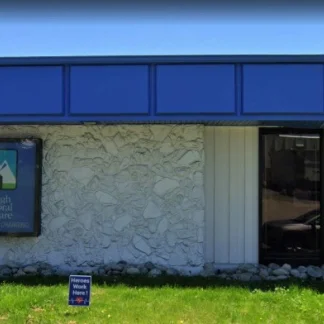Centerboard Recovery Center
Centerboard Recovery Center offers outpatient treatment for individuals with alc...
Mile High Behavioral Healthcare provides comprehensive, supportive and empathetic behavioral healthcare and mental health services to anyone in need. Mile High Behavioral Healthcare programs include alcohol and drug addiction recovery; individual, youth and family counseling; supportive services for LGBTQ; HIV/AIDS prevention and education; and, emergency shelter and temporary housing services.
Contact us for more information: (303) 825-8113

Connect with Mile High Behavioral Healthcare by calling their admissions team directly.
(303) 825-8113 Website Get DirectionsResearch clearly demonstrates that recovery is far more successful and sustainable when loved ones like family members participate in rehab and substance abuse treatment. Genetic factors may be at play when it comes to drug and alcohol addiction, as well as mental health issues. Family dynamics often play a critical role in addiction triggers, and if properly educated, family members can be a strong source of support when it comes to rehabilitation.
In individual therapy, a patient meets one-on-one with a trained psychologist or counselor. Therapy is a pivotal part of effective substance abuse treatment, as it often covers root causes of addiction, including challenges faced by the patient in their social, family, and work/school life.
Life skills trainings involve all the skills a person must have in order to function successfully in the world. These include time management, career guidance, money management, and effective communication. Truly successful addiction recovery is based on the ability to not only live substance-free, but to thrive. Life skills teaches the practical necessities of functioning in society, which sets clients up for success in life, and therefore sobriety.
In individual therapy, a patient meets one-on-one with a trained psychologist or counselor. Therapy is a pivotal part of effective substance abuse treatment, as it often covers root causes of addiction, including challenges faced by the patient in their social, family, and work/school life.
Life skills trainings involve all the skills a person must have in order to function successfully in the world. These include time management, career guidance, money management, and effective communication. Truly successful addiction recovery is based on the ability to not only live substance-free, but to thrive. Life skills teaches the practical necessities of functioning in society, which sets clients up for success in life, and therefore sobriety.
Life skills trainings involve all the skills a person must have in order to function successfully in the world. These include time management, career guidance, money management, and effective communication. Truly successful addiction recovery is based on the ability to not only live substance-free, but to thrive. Life skills teaches the practical necessities of functioning in society, which sets clients up for success in life, and therefore sobriety.
Centerboard Recovery Center offers outpatient treatment for individuals with alc...
Arapahoe House – The Wright Center is a private rehab located in Wheat Ridge, Co...
The Phoenix’s mission is to build sober active community that fuels resilience a...
Stout Street Foundation - Serenity is a Non-Profit rehab center located in Comme...